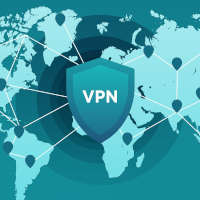Why are VPNs so important for remote working?
Remote working is most definitely the buzz phrase of the moment in the current climate. This is possible thanks to technology such as Virtual Private Networks (VPNs) but why are these so useful for businesses?
Technology has enabled today’s workforce to become increasingly mobile, and with many businesses having to embrace remote working due to the Covid-19 pandemic, this technology has never been more important.
The Risks of Remote Access
Allowing employees to access your company network often involves opening your network to the entire internet. Your employees have to be able to access it from anywhere, so your firewall has to allow anyone to navigate to an address that grants access to your network. Despite password protection, remote connections pose a significant risk for a breach. Thankfully, VPN technology allows remote access without leaving your company network vulnerable.
What is a VPN?
A VPN is a private network that uses a public network, usually the internet, to connect remote sites or users together. The VPN uses “virtual” connections routed through the internet from the business’s private network or a third-party VPN service to the remote site or person.
The History of VPN Technology
VPN technology dates back to 1996, when a Microsoft employee developed peer-to-peer tunnelling protocol (PPTP), which created a secure and private connection between a computer and the internet.
As the internet took off, demand for more sophisticated security systems arose. Anti-virus and related software could be effective at preventing damage at the end-user level, but what was really needed was to improve the security of the connection itself. That’s where VPNs came in.
Initially, VPNs were used almost exclusively in business. However, due to the number of high-profile security breaches which occurred in the early 2000s, VPN technology became more widely used. Everyday internet users became aware of the risks of working online and looked for more secure ways of doing so.
What are the main uses of VPNs?
- Provide security and privacy as you communicate over the internet
- To prevent malware and hacking
- To create a private connection between multiple people and devices across the Internet
- Assist with internet reliability.
Benefits of VPNs for businesses
- By adding a VPN, a business can extend all its intranet’s resources to employees working from remote offices or their homes
- VPNs help ensure security as all traffic between the company server and the user is encrypted and anyone intercepting the encrypted data can’t read it
- Less expensive than leased lines.
Other VPN uses
These days, VPNs are no longer just for businesses. Individuals interested in securing their communications over unsecured public WiFi networks are remaining anonymous during their online transactions have begun subscribing to paid VPN services. These services function in a similar way to business VPNs but go through a VPN provider to reach the internet, rather than via a private business.
A VPN creates a private tunnel over the open internet; everything you send is encapsulated in this private communications channel and encrypted so, even if your data is intercepted, it cannot be deciphered.
In other words, a VPN can keep your computer, smartphone, and any other device you connect to the internet, safe from hackers and malware.
Keep your business safe
Keeping your business safe has never been more crucial than it is right now. If you want to know more about VPN’s and how we can help, please contact us at contact@claritas-solutions.com.



